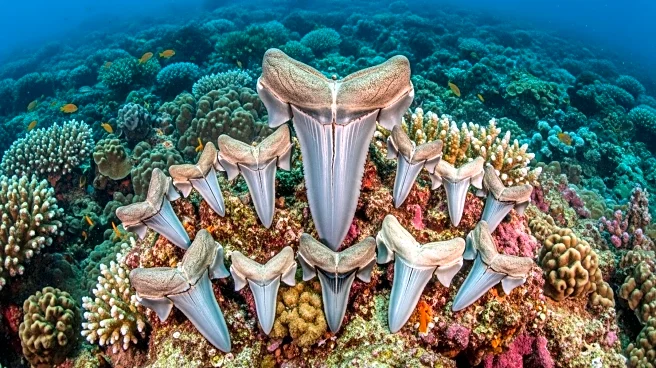What's Happening?
Recent research has revealed that increasing ocean acidification, driven by rising carbon emissions, could significantly affect the teeth of sharks, one of the ocean's apex predators. The study, led by Maximilian Baum from Heinrich Heine University, examined the effects of acidified seawater on shark teeth, particularly those of blacktip reef sharks. The research involved placing naturally shed shark teeth in tanks with varying pH levels, simulating current and future ocean conditions. Findings indicated that teeth exposed to more acidic conditions showed visible damage, including cracks and structural degradation. This suggests that ocean acidification could impact sharks more directly than previously thought, potentially affecting their ability to find and digest food.
Why It's Important?
The study underscores the broader ecological implications of ocean acidification, which not only threatens smaller marine organisms like corals and mollusks but also apex predators such as sharks. Sharks play a crucial role in maintaining the health of marine ecosystems, and any compromise in their feeding efficiency due to tooth damage could have cascading effects. The research highlights the need for urgent action to address carbon emissions and mitigate ocean acidification, as the resilience of sharks and other marine species could be weakened by this environmental stressor, alongside other challenges like overfishing and pollution.
What's Next?
While the study provides valuable insights, it also acknowledges limitations, such as the use of extreme acidification scenarios and the focus on non-living, mineralized tissue. Future research could explore the effects of acidification on living sharks and their feeding behaviors. Additionally, the study calls for more comprehensive data on the vulnerability of shark teeth to acidified conditions, which could inform conservation strategies and policy decisions aimed at protecting marine ecosystems from the impacts of climate change.










